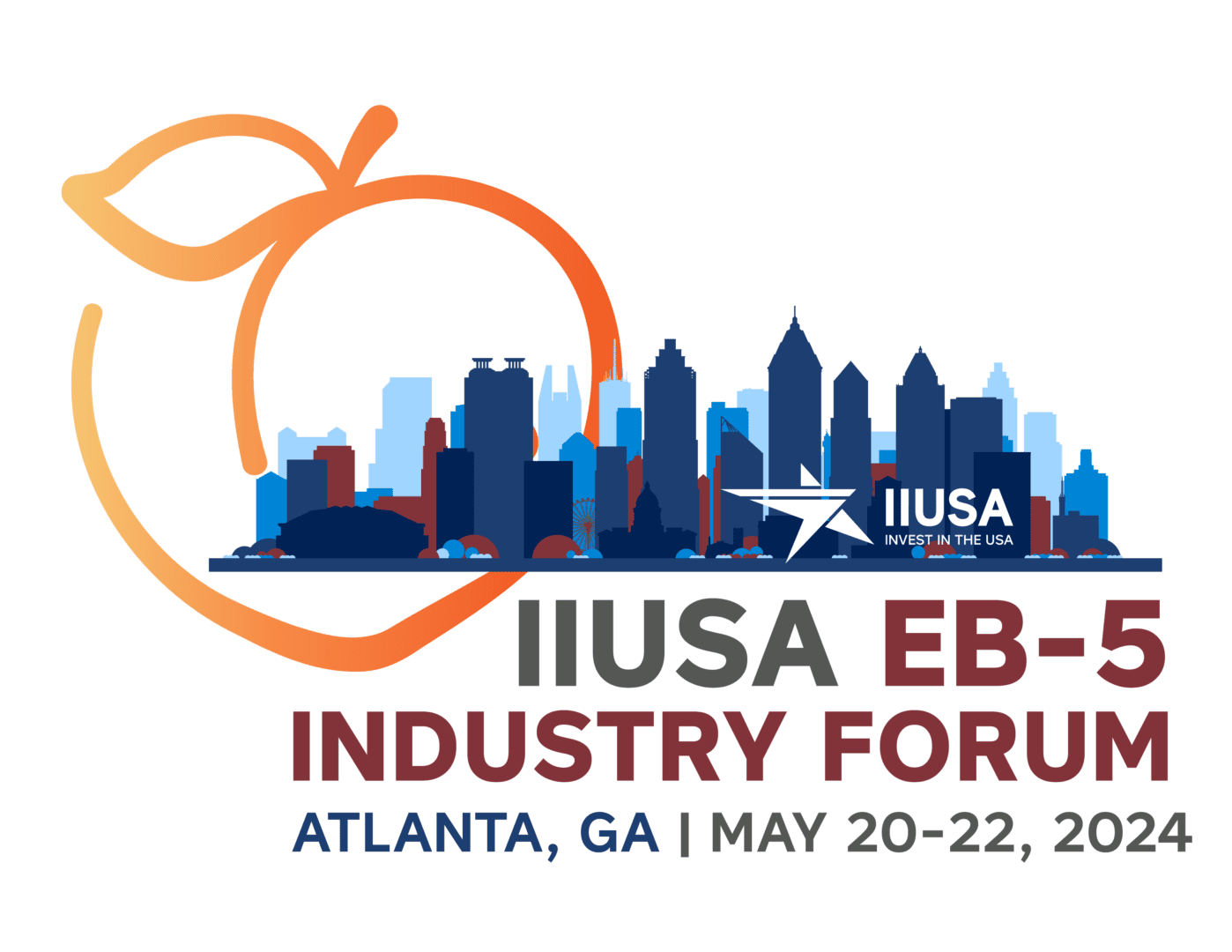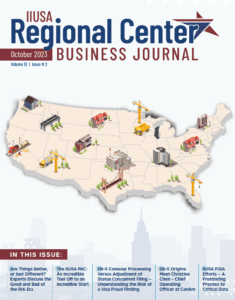Self-Regulatory Procedures Increase Transparency, Reinforce Industry Best Practices (Vol. 2, Issue 2, June, 2014, Pgs. 17-18)
by Daniel J. Healy, President/CEO of Civitas Capital Group; Director, IIUSA; Chair, IIUSA Best Practices Committee
The EB-5 program is an integral economic development tool that will play a role in keeping America’s economy strong, vibrant, and competitive with the many other nations around the world. For our clients, an EB-5 in-vestment is not just a financial product; it is a life-changing experience. EB-5 investors have both their investment and their dream of be-coming an American on the line.
With so much at stake, increased oversight with a focus on anti-fraud measures and standards for program participation is essential.
In the wake of high-profile stories of alleged fraud and impropriety at some regional centers, Congress and the Administration have increased their focus on enhancing the integrity of the EB-5 program. This is welcome news. However, our industry can and must do more to ensure the trust of our investors and send a clear signal to would-be fraudsters that any actions that threaten the integrity and reputation of the EB-5 Regional Center will not be tolerated.
As Chair of IIUSA’s Best Practices Committee, I am pleased that the trade association adopted a new Code of Ethics (“Code”) and Standards of Professional Conduct (“Standards”) that reflect the client-first approach for the industry. This work builds on IIUSA’s existing industry best practices, continuing the organization’s tradition of ensuring current policies are suitable for current market conditions, and prepared for future ones. See https://iiusa.org/en/iiusa-approved-best-practices/ to learn more on this and to access these documents.
The principal purpose of IIUSA’s new standards is to promote responsible, professional and ethical behavior to help protect the public and to reinforce the public’s confidence in the EB-5 Program and EB-5 Regional Center industry.
These self-regulating procedures will increase transparency in the market and create clear communications between project sponsors, investment managers and foreign investors. The process is a mechanism for accountability and is not designed to replace any legal processes.
Clear communication is the underlying principle behind the ethics standards. In establishing an open communications process between all members and the Executive Director, the hope is that any alleged violations can be resolved professionally and without the use of membership sanctions. Therefore, IIUSA members are encouraged to first discuss and provide evidence of alleged violations directly with the individual or regional center they suspect. Many times, supposed violations are simply factual misunderstandings.
If the problem cannot be worked out directly, however, IIUSA’s new standards include a process to file a complaint for market participants that observe bad acts or bad actors.
The process to lodge a complaint under the Code and Standards is as follows:
- Put it in Writing: An individual must file a formal written complaint with the Executive Director and members of the IIUSA Board of Directors. IIUSA has created a “Code of Ethics and Standards of Professional Conduct Violation Complaint Form” to facilitate this process. The complaint should be as detailed as possible and reference the Code and Standards section(s) alleged to have been violated. The complaint must also include the name, position, address, telephone number and signature of the author of the complaint. Complainants should be prepared to provide supplemental resources, if asked.
The Executive Director of IIUSA and the Chair of IIUSA’s Best Practices Committee will then review the complaint in conjunction with outside counsel. Within 30 days of receipt of a complaint, IIUSA’s Executive Director must determine if the complaint merits referral of the matter to a disinterested ad hoc panel for further investigation and possible sanctions.
- Procedures are not a legal substitute: These enforcement procedures are not a substitute for a court of law. The Board can defer any action on a complaint if there are current or pending related legal proceedings. Conversely, the Board may also report alleged violations to the proper authority or regulatory body.
- Anyone may submit a complaint. Complaints may be submitted by IIUSA members, non-member practitioners within the EB-5 Regional Center industry, and the public at-large.
- Confidentiality. In order for this self-policing process to work, confidentiality is of the utmost importance. Prior to the imposition of sanctions by the Board, all proceedings for alleged violations of the Code and Standards shall be confidential within IIUSA.
IIUSA may disclose the pending complaint, status, and subject matter if:
a). the respondent Member has waived confidentiality;
b). the proceeding is based upon allegations that include either the conviction of a crime or discipline by a governmental agency with jurisdiction over the member;
c). the proceeding is based upon allegations that have become generally known to the public; or
d). there is a need to notify another person or organization in order to protect the public or the administration of justice;
e). as required by subpoena, court order, etc., provided that IIUSA’s outside counsel confirms the material is responsive to the same and required to be disclosed.
The complaint process is one of several mechanisms established to ensure objectivity and fundamental fairness to all parties involved. During the association’s annual conference, IIUSA leaders deputized participants to submit complaints if they saw non-compliant activity.
As the EB-5 industry matures and continues to grow, the program’s regulatory infrastructure must also evolve in order to maintain the trust and confidence of all stakeholders, including investors, businesses, regulators, elected officials, and most importantly, the American public. IIUSA is proud to lead by example and understands that a strong Code of Ethics, and a clear complaint process will help strengthen the EB-5 industry. ■
RCBJ Retrospective articles are reprinted from IIUSA’s Regional Center Business Journal trade magazine. Opinions expressed within these articles do not necessarily represent the views of IIUSA and are provided for educational purposes.








